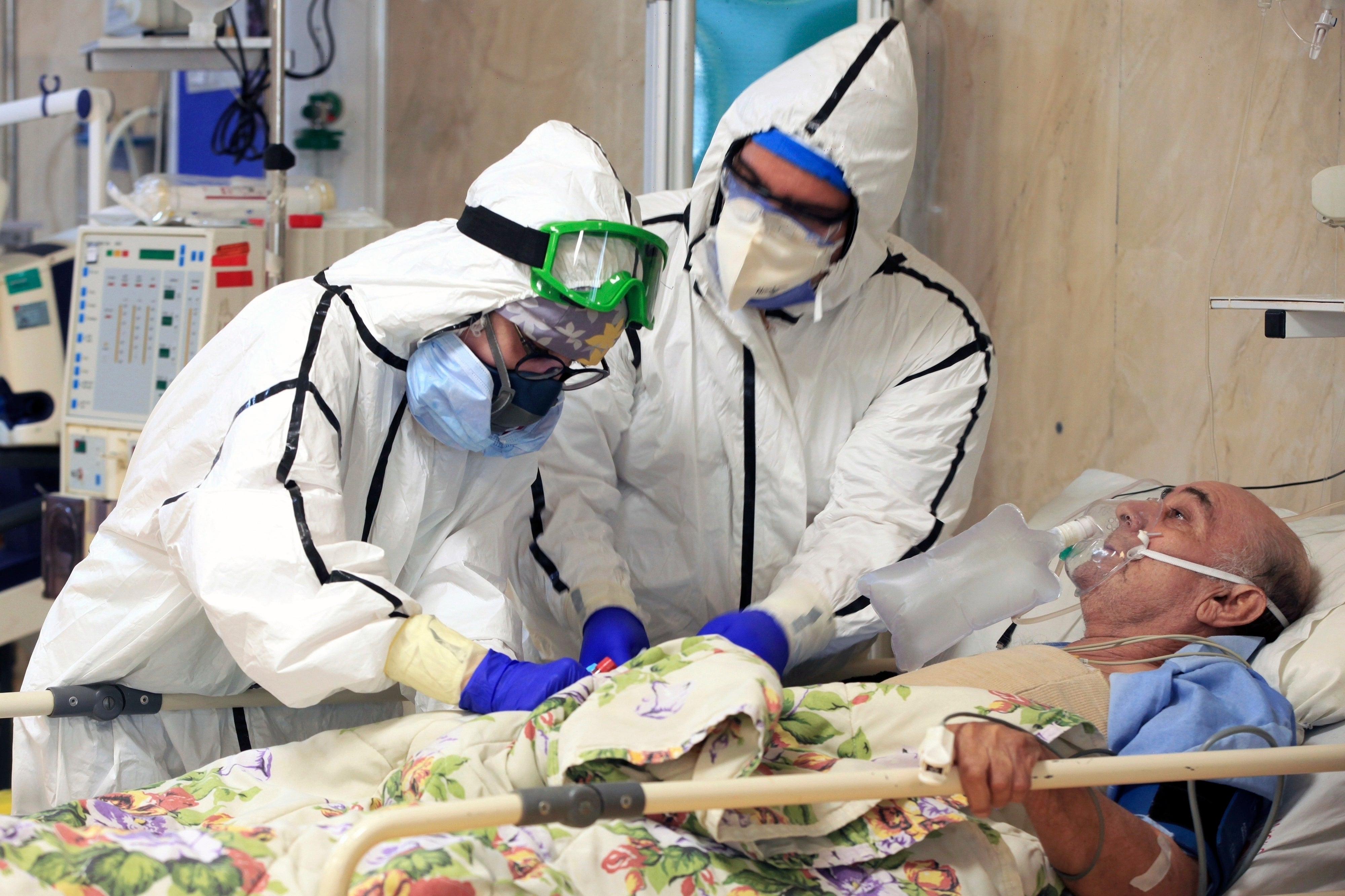Iran begins first human trial of locally made virus vaccine
Iran's state TV says the first study of the safety and effectiveness of a coronavirus vaccine in Iran has begun

Your support helps us to tell the story
From reproductive rights to climate change to Big Tech, The Independent is on the ground when the story is developing. Whether it's investigating the financials of Elon Musk's pro-Trump PAC or producing our latest documentary, 'The A Word', which shines a light on the American women fighting for reproductive rights, we know how important it is to parse out the facts from the messaging.
At such a critical moment in US history, we need reporters on the ground. Your donation allows us to keep sending journalists to speak to both sides of the story.
The Independent is trusted by Americans across the entire political spectrum. And unlike many other quality news outlets, we choose not to lock Americans out of our reporting and analysis with paywalls. We believe quality journalism should be available to everyone, paid for by those who can afford it.
Your support makes all the difference.The first study of the safety and effectiveness of a coronavirus vaccine in Iran began Tuesday, state TV reported, with dozens due to receive the domestically developed shot in the hardest-hit country in the Middle East.
The vaccine, produced by Shifa Pharmed, part of a state-owned pharmaceutical conglomerate, is the first in the country to reach human trials. President Hassan Rouhani has said Iran is cooperating with a “foreign country” to produce another vaccine expected to run in tests in human volunteers in February, without offering further details.
Iran has struggled to stem the worst virus outbreak in the region, which has infected over 1.2 million people and killed nearly 55,000.
The study, a Phase 1 clinical trial, will enroll a total of 56 volunteers to receive two shots of Iran’s vaccine within two weeks, according to Hamed Hosseini, a clinical trial manager, with results to be announced roughly a month after the second shot. Three people received the first injections on Tuesday at a ceremony at a Tehran hotel attended by the country's health minister. Authorities expect to the vaccine to hit the market by late spring 2021.
“I am happy that the scientific process went ahead in a proper way,” said Tayebeh Mokhber, daughter of the Barekat Pharmaceutical Group chairman, who was the first to get jabbed. “I hope the conclusion will be health for our people.”
The treatment dubbed Coviran, is a so-called inactivated vaccine, meaning that it is made of a coronavirus that has been weakened or killed by chemicals, similar to how polio immunizations are made. Leading Western vaccines, like the shot made by Pfizer and its German partner BioNTech, use newer, less-proven technology to target the coronavirus’ spike protein using RNA.
Still, with progress slow in Iran's vaccine research as Western countries grant approval for emergency use of vaccines and kick off mass inoculation campaigns, Iranian authorities have stressed the need to import vaccines.
Iranian authorities have repeatedly alleged that tough American sanctions undermine their efforts to purchase foreign-made vaccines and inoculate their citizens. U.S. sanctions do have specific carve-outs for medicine and humanitarian aid to Iran. However, international banks and financial institutions hesitate in dealing with Iran transactions for fear of being fined or locked out of the American market.
Iran retains routes to imported vaccines, including through COVAX, an international program designed to distribute coronavirus vaccines to participating countries around the world. On Monday, Iran said it expects a group of U.S.-based benefactors to ship thousands of Pfizer coronavirus vaccine in the coming weeks.